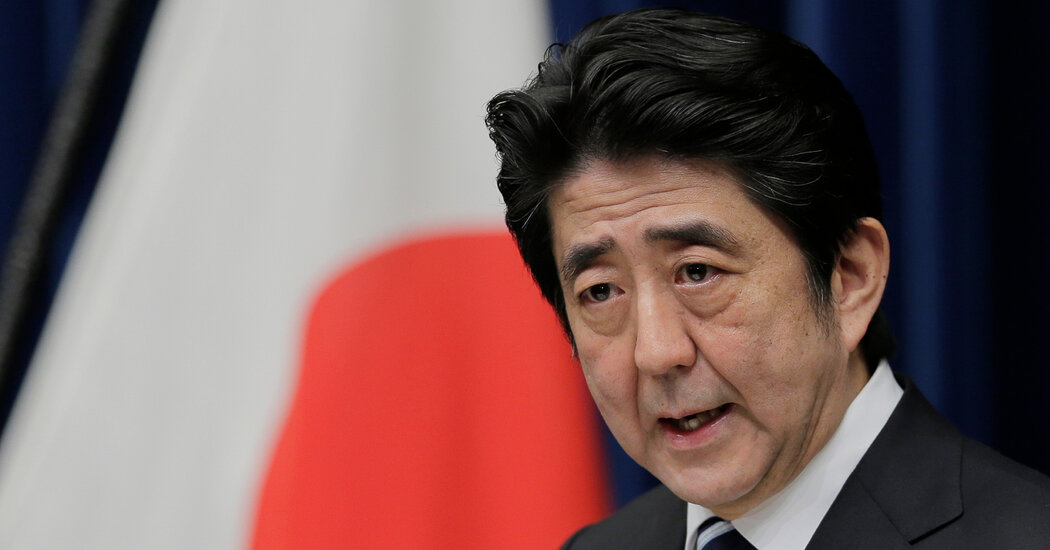News of the shooting of Shinzo Abe, Japan’s former prime minister, was met with an outpouring of shock and sympathy from leaders and politicians around the world, in a sign of the lasting global ties he had sought to foster in his eight years as the country’s leader.
Throughout his time in office, Mr. Abe had engaged in proactive diplomacy with close allies, as well as with countries with which Japan had thorny relations. He sought to cast his country as a defender of the liberal world order and as a counterweight to China’s rise in the region.
In his jet-setting diplomacy — he visited about 80 countries during his term — Mr. Abe grew chummy with President Donald J. Trump, met dozens of times with President Vladimir V. Putin of Russia and, in 2018, became the first Japanese leader to visit Beijing in seven years when he met with China’s top leader, Xi Jinping.
Mr. Abe also hosted President Barack Obama when he made a poignant, historic visit in 2016 to Hiroshima, where the United States dropped an atomic bomb at the end World War II. Mr. Obama was the first American president to do so.
After the news of his death, Ursula von der Leyen, president of the European Commission, said on Twitter that the assassination was a “brutal and cowardly murder.” Prime Minister Narendra Modi of India said on Twitter that he was “shocked and saddened beyond words” at Mr. Abe’s fatal shooting. “He was a towering global statesman, an outstanding leader, and a remarkable administrator,” Mr. Modi wrote. “He dedicated his life to make Japan and the world a better place.”
After Mr. Abe’s death was confirmed on Friday, Secretary of State Antony J. Blinken Jr., who was in Bali, Indonesia, for a Group of 20 meeting, called the attack “profoundly disturbing,” adding that Mr. Abe had had “great vision for what a free and open Indo-Pacific region could look like, and also incredible ability to really work toward realizing that vision.”
Zhao Lijian, spokesman for the Chinese foreign ministry, said at a regularly scheduled news briefing earlier on Friday that Beijing was “shocked” by the shooting.
Among other global figures, Russia’s foreign minister, Sergey Lavrov, expressed his condolences at the G20 meeting, according to Reuters. Britain’s prime minister, Boris Johnson, wrote on Twitter that he was “utterly appalled and saddened to hear about the despicable attack.” Singapore’s prime minister, Lee Hsien Loong, called Mr. Abe “a good friend of Singapore.” Prime Minister Narendra Modi of India tweeted that he was “deeply distressed,” saying Mr. Abe was a “dear friend.” And President Tsai Ing-wen of Taiwan, in a Facebook post, called Mr. Abe “our good friend” and a staunch ally.
In 2018, in a moment perhaps emblematic of Mr. Abe’s assertive diplomacy, he stepped into a leading role after the Trump administration pulled out of what was called the Trans-Pacific Partnership, a multilateral trade agreement initiated by the United States. In the absence of the United States, Japan marshaled the remaining nations into signing the sweeping trade deal.
But Mr. Abe’s long-held aspirations to strengthen Japan’s military and pare the pacifism that had dominated the country’s postwar policies — along with his balking at demands for an apology for his country’s wartime atrocities — wore on relations with Asian neighbors that had suffered from Japan’s imperial ambitions.
With his denial that the Japanese military had forced women into sexual slavery during the war and the push for Japanese textbooks to carry nationalist versions of history, relations between Japan and South Korea under Mr. Abe deteriorated to one of the lowest points in recent years.
Michael Crowley contributed reporting.
